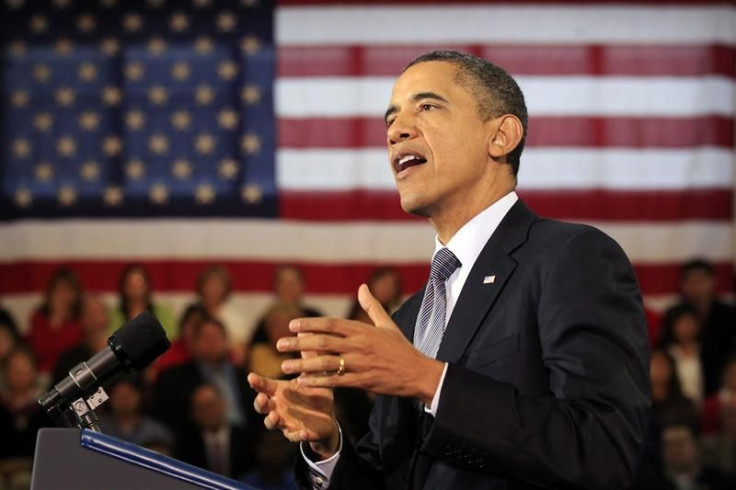Obama Dials Up Boehner, Calls for Payroll Tax Cut Deal

President Barack Obama tried to budge a Congress currently deadlocked over how to bridge a divide between Senate and House plans for extending the payroll tax cut, with both sides seemingly stubborn in ceding middle ground.
Obama called House Speaker John Boehner, R-Ohio, and Senate Majority Leader Harry Reid, D-Nev., to push for a deal and express his openness to participate in the process, according to White House Spokesman Jay Carney.
The ball is in the House's court, Carney said.
The President asked Boehner to lead House Republicans in supporting a two-month, stop-gap measure passed by the Senate on Saturday, while negotiating a long term deal as well. He reportedly did not express a willingness to restart negotiations on a deal 10 days before the current tax break is set to expire.
The Senate bill was ironed out by Reid and Senate Minority Leader Mitch McConnell, R-Ken., in an unusual weekend vote. It maintains the reduced rate of 4.2 percent on the payroll tax, extends unemployment benefits and pushes back planned reductions in reimbursements to doctors from Medicare.
The measure passed by an 89-10 vote on Saturday, and appeared cruising towards a floor vote in the House, with Boehner expressing support for the bill. Its prospects became dicey when reports stated the Tea Party faction of the Republican caucus vocally opposed the deal, claiming the Senate chose to kick the can down the road for two months.
Speaker Boehner Wants Further Talks
House Republicans balked at the legislation, leading House Speaker John Boehner, R-Ohio, to demand further talks in the form of a conference committee that will iron out difference between the two houses. Senate members promptly left the Capitol and headed home after passing the bill on Saturday, and Reid has not expressed any interest in coming back to Washington D.C.
Earlier this week, both the House and Senate, in a bipartisan, bicameral way, funded our government through September 30, Boehner said. We did it in a regular process, regular order, and what the regular order here is a formal conference between the House and Senate.
Boehner and members of his caucus remained mum in publicly reacting to the President's appeal, despite his claim that the Senate bill was their only option. The House GOP's intransigence on the bill came as a surprise, as it was designed to appeal to them directly.
The bill was laced with GOP-friendly riders, including an expedited decision on the controversial Keystone XL pipeline, which the Obama administration had originally shelved. The project has been depicted as a job creator by GOP lawmakers, but faces heavy opposition from environmentalists. Still, the move was apparently not enough to entice Republican representatives.
Should the cut be allowed to expire, the tax will revert to its original 6.2 percent rate, hitting many middle income Americans in the paycheck at a time when many economists believe leaving money in their wallets can only help the economy.
According to reports, Republican lawmakers who initially doubted the bill's ability to help the economy are particularly opposed to its swiping of $120 billion from the Social Security Trust Fund. GOP representatives want the lost revenue to be covered by spending reductions, while Democrats have pushed tax increases on the wealthy.
The latest Republican intransigence may also be fueled by the prospect of having to vote against a tax cut during an election year. Many in the GOP have expressed doubt over the cut's ability to effectively fix the economy, whatever scant help it provides. Facing a potential vote on the unpopular cut in the throes of an election year would not bode well for naysayers.
© Copyright IBTimes 2024. All rights reserved.




















